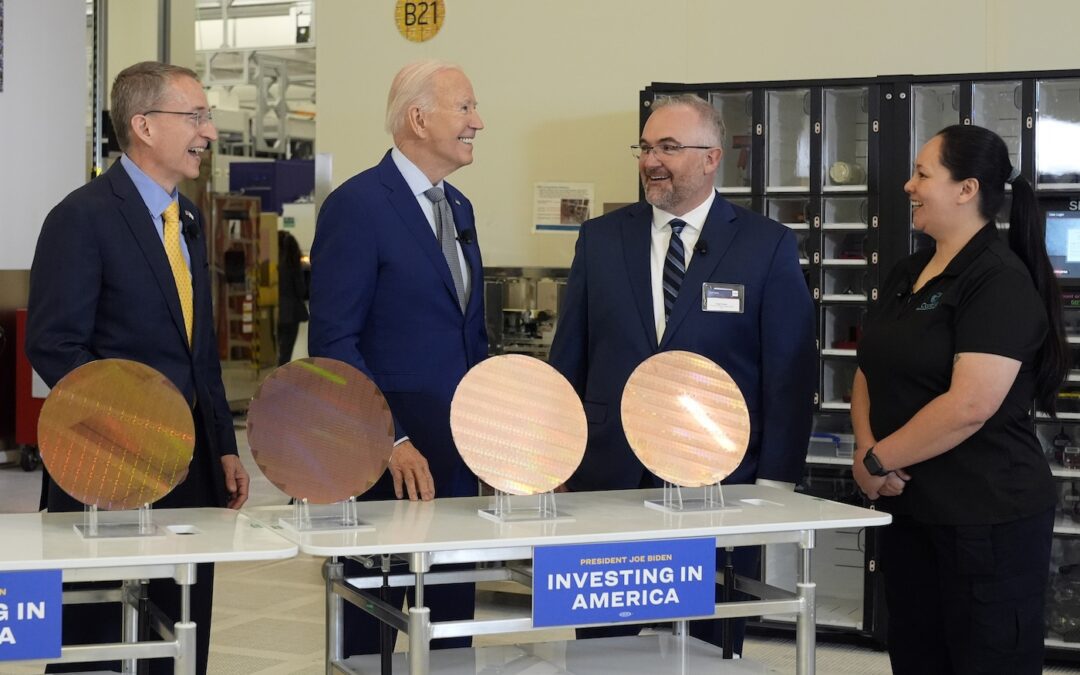
What started out as a summer job has turned into a fulfilling career in the skilled trades for Kilah Engelke. “We have the best health care available and a pension that will last my entire lifetime and allow me to retire with dignity at an early age,” she said. “The wages are great too.” (Graphic by Francesca Daly)
Kilah Engelke first learned about cement masonry from her stepfather.
After working for years building roads, he served as an estimator for a heavy highway company, calculating the cost of projects, and was able to get Engelke work on job sites as a way to pay for college. The company she worked with was based out of Racine, but she did work all over the Midwest.
After a few summers on the job, Engelke decided to take a break from her studies to travel. When she was done traveling, though, she ultimately decided a career in cement masonry made more sense than returning to school.
She was “getting paid too much to have it make sense to go back,” Engelke said in an interview.
Engelke joined the Laborers’ International Union of North America and started an apprenticeship to learn how to become a full-time cement mason. She spent the next 15 years working on job sites.
“I decided to pursue my career path because I enjoyed the work, I enjoyed being a part of a crew that felt like a team, and I found a new confidence that grew more and more the better I got at the work I did,” she said. “I started to see that this type of work was just as professional, but without the debt and the unknown that comes along with a degree that doesn’t correlate to a specific job.”
Although she’s loved her career, Engelke admits that working as a cement mason was hard work. Jobs usually started around 6 or 7 a.m., and work began right away: building roads, pouring concrete, and more. The workday could be up to 14 hours long.
“Make hay while the sun shines,” she said.
She also noted the dangerous nature of the job, especially when working in traffic and on hot days. But the positives have outweighed the negatives for Engelke, and she’s committed to spreading the gospel of a career in the skilled trades—especially for women.
“We have the best health care available and a pension that will last my entire lifetime and allow me to retire with dignity at an early age,” she said. “The wages are great too.”
Engelke, now in her 40s, is a member of the Operative Plasterers’ and Cement Masons’ International Association (OPCMIA) Local 599 in Milwaukee, and serves as the recording secretary for the union, keeping track of what’s said and decided in union meetings. She also serves as a business agent for the union, and has been in that role since 2018.
As a business agent, Engelke has taken on significant responsibilities. She’s responsible for managing and controlling her jurisdiction–prepping and visiting job sites, checking up on workers, negotiating contracts when applicable, and connecting clients to contractors (and vice versa). She also has a hand in hiring and growing membership.
Engelke is also the vice president of EmpowHER Wisconsin, an organization based in the Milwaukee area through the Building Trades Council. The group of volunteer tradeswomen aim to encourage, create, and promote paths to leadership for women in trades.
“We want to be examples of successful tradeswomen,” she said.
Members of EmpowHER go to career fairs and other events to try and recruit women into trade fields.
According to the Wisconsin Building Trades Council, there are more women working in construction in the U.S. than ever, but they remain “starkly underrepresented in Wisconsin construction labor and apprenticeships.” As of Feb. 2023, women made up just 3.3% of apprenticeships in construction. Women also made up only 9.2% of Wisconsin’s construction industry workers, as of 2022.
During EmpowHER meetings, women are encouraged to come and discuss anything that is on their mind: how to navigate a male-dominated field, technical questions, and more. EmpowHER also helps women in trades find child care.
Engelke also spoke about a “formal mentoring curriculum” for women in trades that the members of EmpowHER have been working on in conjunction with the University of Wisconsin School for Workers. This curriculum will make it easier for women in registered apprenticeships in the state of Wisconsin to learn from fellow women in trades.
When asked if she has any advice for women who are interested in trades work, Engelke said not to “let fear hold you back from something you want.”
“As someone who is tasked with hiring people, finding people, I want anybody that’s motivated and wants to be there to do it,” she said. “You don’t have to be the strongest person, you just have to have the desire to do it.”
The work of recruiting more young women into the trades grows more urgent each year, amid the continued aging of the predominantly male workforce.
“In order to keep the trades moving forward, we need to figure out how to access 50% of the population,” Engelke said.
There’s also likely to be a huge surge in the demand for skilled trades work in the coming years, amid massive federal investments in infrastructure, clean energy, and domestic manufacturing. Over the past two years, President Biden has signed into law the Infrastructure Investment and Jobs Act, the CHIPS and Science Act, and the Inflation Reduction Act—a trio of laws that will direct billions of dollars to Wisconsin.
Engelke says that the infrastructure bill in particular, is “great for Wisconsin” and “great for diversity” in the construction workforce.
“Most dollars come along with expectations to include or provide child care, to hire and employ a more diverse workforce, and to generate apprentices,” she said. “All of this is designed to not only fix our infrastructure, but also to break down typical barriers to employment that have generally affected the non-traditional employees.”
Since Biden signed the infrastructure law, $3.1 billion in funding has been announced and is headed to Wisconsin to support over 290 specific projects. These projects include upgrading the state’s water infrastructure, modernizing Wisconsin’s airports, and providing upgrades to the 979 bridges and over 1,949 miles of highway in poor condition across the state.
During his 2023-25 Biennial Budget Message earlier this year, Wisconsin Gov. Tony Evers also proposed investing in expanding access to reliable, high-speed internet, and continuing to improve Wisconsin’s roads, highways, and bridges.
“Investing in 21st century transportation and infrastructure is essential to prepare our workforce and our economy for the future, and we have to start right away,” Evers said during his speech.
These various investments already seem to be paying off in the construction sector. The number of workers employed in construction in Wisconsin is up roughly 3% over the past 12 months, and in May, there were more workers employed in construction in the state than at any time in the past decade, according to the U.S. Bureau of Labor Statistics.
But as federal investments continue to pour in over the next several years, there’s a growing concern over the construction workforce shortage both in Wisconsin and across the country.
That’s where Engelke’s work with EmpowHER could make a difference. She recommends “any woman that wants to be able to take care of herself and her family” to look into a career in the trades.
“There is something for everyone,” she said.

Trump-appointed judge strikes down FTC ban on noncompete agreements
FTC spokesperson Victoria Graham said that the decision “does not prevent the FTC from addressing noncompetes through case-by-case enforcement...

Judge upholds Biden-Harris administration’s ban on noncompete clauses
Noncompete clauses effectively prevent workers from starting their own business or finding a new job in the same field within a certain area or...

Opinion: A focus on reforming regulations is the final piece of President Biden’s manufacturing agenda
Commentary from former Lt. Gov. Mandela Barnes If you want something built right, build it in Wisconsin. As the son of a third-shift autoworker and...

Opinion: It’s time for Wisconsin’s GOP-controlled legislature to stand up for teachers
Commentary from A Better Wisconsin Together As Teacher Appreciation Week 2024 comes to a close, Wisconsinites have spent the past week showing...




